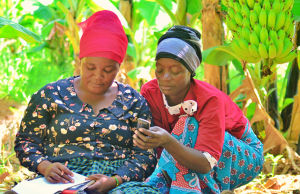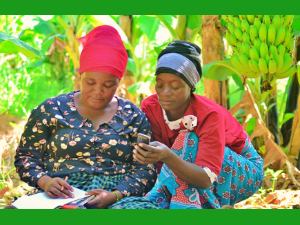Smallholder Farmers Call for Involvement in Research Processes
 Through their umbrella Organisation: Eastern and Southern Africa Small Scale Farmers Forum (ESAFF), farmers say because they are not involved in research, most technologies haven’t been embraced because they don’t understand them. Smallholder farmers have called for involvement in the research processes so as to understand technologies developed for them before they can apply them.
Through their umbrella Organisation: Eastern and Southern Africa Small Scale Farmers Forum (ESAFF), farmers say because they are not involved in research, most technologies haven’t been embraced because they don’t understand them. Smallholder farmers have called for involvement in the research processes so as to understand technologies developed for them before they can apply them.
Through their umbrella Organisation: Eastern and Southern Africa Small Scale Farmers Forum (ESAFF), farmers say because they are not involved in research, most technologies haven’t been embraced because they don’t understand them.
Through their chairperson, Hakim Baliraine, they add that even when they want to access new technologies, the language used is unfriendly to farmers. Hakim is now calling on researchers to work with farmers, through a participatory research approach so their concerns can be addressed at the start of the research process.
Participatory research recognises that there must be concrete and clear ways that define the involvement of farmers in all the research cycles. The farmers made the call on Monday during a webinar on Collaborative Action on
Participatory Research in Family Farming, organised by ESAFF with support from the World Rural Forum.
“Other concerns from farmers that researchers should consider include the relevance, accessibility, inclusiveness and adaptability of the research products being produced for the farming community” Baliraine said. The meeting came at a time when family farming communities, which are smallholder farmers in both Southern Africa Development Community (SADC) and East African Community (EAC) countries, are faced with multiple crises related to climate change agrodiversity loss, natural resource degradation, climate shocks, inadequate public funding among others, according to ESAFF.
One of the technologies, for example, to manage the effects of climate change, that was discussed in the meeting is agroecology.
The technology that emphasizes use of biopesticides, fertilizers including practices like agroforestry, among others. The meeting attracted stakeholders from across EAC and SADC member countries including regional research bodies like the
Association for Strengthening Agricultural Research in Eastern and Central Africa (ASARECA) and the Centre for Co-ordination of Agricultural Research and Development for Southern Africa (CARDESA).
This has further been backed up by the recent State of Food Security and Nutrition report 2023, which was released last week indicating that hunger is on the rise in Western Asia, the Caribbean and all sub- regions of Africa.
The report adds that about 41 million people in 10 SADC countries are facing hunger while in EAC partner states, 43.49 million people are food insecure.
Access to markets
In addition to research, Moses Odeke from ASARECA added that technologies from research should also be backed with markets. “If you don’t have money in your pocket, you cannot fight poverty. That is why marketing comes to act as an incentive for farmers who want to escape the poverty trap. You cannot give farmers the technology and when there is a surplus, they cannot sell,” Odeke added.
In addition, Baitsi Podisi from CCARDESA added that to ensure that consumers who are not farmers access the food to reduce the number of people going hungry, there is a need to increase production.
“So, we need to increase production so as to access markets so that the non-farmers can access the food, but also, this can be a window through which farmers sell some food so as to get out of poverty” added Podisi.
How researchers will support
On their part, research organisations like CCARDESA and ASARECA agreed to develop an MOU with small-scale farmers on how they can participate in research, increase access to knowledge products in a simplified language in addition to fostering a good policy environment with key stakeholders among others.























